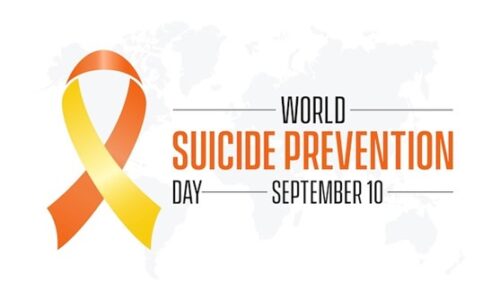Suicide prevention training in Brisbane is of utmost importance. The alarming rates of suicide in our society highlight the need for effective strategies to prevent such tragedies. By providing suicide prevention training in Brisbane, we empower individuals and communities with the knowledge and skills to identify warning signs, engage with those at risk, and offer appropriate support. This training equips individuals with the tools to intervene and potentially save lives. It also raises awareness about the available mental health resources in Brisbane, ensuring that those in need receive the assistance they require. Investing in suicide prevention in Brisbane is a crucial step towards creating a safer and more compassionate community. Together, we can make a difference in suicide prevention in Brisbane.
Suicide is a devastating issue that affects families, friends, and communities. Despite ongoing efforts to prevent suicide, rates have continued to rise in Queensland and throughout the nation over the past decade.
Recognising the urgency and importance of addressing this crisis, the Queensland Government has made reducing the suicide rate a priority. In line with this commitment, the government has developed a comprehensive suicide prevention plan called “Every life: The Queensland Suicide Prevention Plan 2019-2029.” This whole-of-government plan aims to provide renewed strategies and support to reduce suicide in Brisbane and across Queensland. With an investment of $80.1 million in the State Budget 2019-20, the plan demonstrates a firm commitment to tackling this pressing issue.
Understanding Every life: A Whole-of-Government Plan
The Every life plan acknowledges that suicide is preventable and emphasises the need for a collaborative approach to address it. It recognises that effective suicide prevention requires responses beyond the healthcare sector and must actively involve people with lived experience. The plan aligns with national and international best practices, evidence-based approaches, and innovative strategies.
To ensure the success of the plan, it has been structured into three distinct phases, each building upon the achievements and learnings of the previous phase. The duration of the plan is set for 10 years, allowing for comprehensive and sustained efforts to reduce suicide rates. Additionally, the Every life plan is integrated within the broader framework of the “Shifting minds: Queensland Mental Health, Alcohol and Other Drugs Strategic Plan 2018-2023,” reinforcing the government’s commitment to mental health and wellbeing.
Action Areas: Key Focus for Phase One
In Phase One of the Every life plan, four action areas have been identified to establish a strong foundation for ongoing reform. These action areas are crucial to driving the necessary shifts in suicide prevention strategies:
- Enhancing Crisis Support: Strengthening crisis support services and improving access to immediate assistance for individuals at risk of suicide.
- Targeted Interventions: Developing and implementing targeted interventions tailored to specific population groups and high-risk communities.
- Community Engagement: Engaging communities and promoting awareness, education, and training to increase understanding and reduce stigma surrounding suicide.
- Improved Data and Research: Enhancing data collection and research efforts to inform evidence-based decision-making and evaluate the effectiveness of suicide prevention initiatives.
Implementation: Collaborative Efforts for Impact
Implementing the Every life plan requires collective support, commitment, and cooperation across all government departments, agencies, the public and private sectors, and the general community. The responsibility for implementation rests with all Queensland Government agencies, highlighting the significance of a coordinated approach to address this complex issue.
To further support the implementation of the plan, a cross-sector Queensland suicide prevention network has been established. This network serves as a platform for collaboration, knowledge sharing, and ongoing support. It brings together diverse stakeholders from various sectors, including healthcare, education, community organisations, and government bodies, to work collectively towards suicide prevention in Brisbane and across Queensland.
Evaluation: Driving Continuous Improvement
Evaluation plays a crucial role in strengthening the evidence base for effective suicide prevention. It enables policymakers, service providers, and stakeholders to assess the impact of interventions, identify areas for improvement, and drive continuous progress in suicide prevention policies, services, and programs.
The evaluation of the Every life plan will cover three key aspects:
- Content/Process Evaluation: This evaluation will measure the effectiveness of plan implementation, assessing how well the strategies and actions have been executed.
- Implementation/Outcomes Evaluation: This evaluation will focus on measuring the effectiveness of specific actions and initiatives in reducing suicide rates and improving outcomes for individuals at risk.
- Impact Evaluation: This evaluation will measure the overall reduction in suicide rates, suicide attempts, and suicide crises, providing a comprehensive assessment of the plan’s impact on the community.
Building on Past Efforts: The Way Back Support Service
In addition to the Every life plan, Brisbane has implemented several programs and services to support suicide prevention and provide crucial assistance to individuals at risk. One such program is the Way Back Support Service, which offers psychosocial aftercare to individuals following a suicide attempt or during a suicide crisis.
The Way Back Support Service delivers community-based, non-clinical support coordination and care navigation for up to three months. Its primary goal is to facilitate access to community services that meet the individual’s specific needs. The service ensures that individuals receive timely support, with initial contact made within 24 hours of referral, including weekends.
The Way Back Support Service is delivered by dedicated organisations within the Brisbane region, such as Richmond Fellowship Queensland, which supports individuals aged 15 and older residing in the Redcliffe/Caboolture region, and Community in partnership with Brisbane Youth Service and the Institute for Urban Indigenous Health, which supports individuals aged 18 and older residing in the inner city region.
Strengthening the Workforce: Suicide Prevention Training
To effectively address suicide prevention in Brisbane, it is essential to equip the community with the necessary knowledge and skills. Suicide prevention training plays a vital role in building a competent and compassionate workforce capable of identifying and responding to individuals at risk.
Brisbane offers a range of suicide prevention training programs designed to educate individuals across various sectors. These programs provide valuable insights into risk factors, warning signs, and appropriate interventions. By empowering individuals with this knowledge, Brisbane aims to create a network of informed and proactive community members who can contribute to suicide prevention efforts.
CALM Suicide Intervention Skills
CALM Suicide Intervention skills training is an essential program for individuals seeking to make a difference in suicide prevention. With the alarming rise in suicide rates, it is crucial to equip ourselves with the necessary skills and knowledge to intervene effectively. This training program, available in Brisbane, focuses on providing participants with the tools and strategies to recognise the warning signs of suicide and intervene appropriately.
By attending this Suicide prevention training in Brisbane, participants will gain valuable insights into the complexities of suicidal behaviours and learn how to approach individuals who may be at risk. The program emphasises the importance of active listening, empathy, and non-judgmental communication when engaging with someone in crisis. It equips participants with practical intervention techniques, such as safety planning, risk assessment, and referral strategies.
The CALM Suicide Intervention skills training goes beyond theoretical knowledge and provides hands-on practice through role-plays and case studies. Participants will have the opportunity to apply their newly acquired skills in a supportive environment, under the guidance of experienced facilitators. This experiential learning approach ensures that participants feel confident and capable when faced with real-life situations involving suicide intervention.
Upon completion of the CALM Suicide Intervention skills training, participants will receive a certification that recognises their commitment to suicide prevention. This certification can be a valuable addition to resumes or professional portfolios for those working in fields such as mental health, counseling, or community services. Moreover, the knowledge gained from this training can be applied not only in professional settings but also in personal relationships, enabling individuals to support loved ones who may be struggling with suicidal thoughts.
Suicide prevention training in Brisbane offers individuals the opportunity to develop crucial intervention skills that can save lives. The CALM Suicide Intervention skills training equips participants with the knowledge, empathy, and practical tools necessary to effectively intervene in suicidal situations. By enrolling in this program, participants can make a meaningful impact in their communities and contribute to reducing the heartbreaking toll of suicide.
CALM Care Suicide Awareness
CALM Care Suicide Awareness is a program designed to provide suicide prevention training in Brisbane and surrounding areas. This training aims to equip individuals with the knowledge and skills necessary to identify warning signs of suicide and intervene effectively. The program focuses on creating a supportive and empathetic environment where individuals feel comfortable discussing mental health issues and seeking help. By offering this training, CALM Care aims to reduce the stigma associated with mental health and increase awareness about the importance of early intervention. Suicide prevention training in Brisbane is crucial as it can help save lives and ensure that individuals in crisis receive the support they need.
The suicide prevention training offered by CALM Care in Brisbane covers various topics, including risk factors, warning signs, and protective factors associated with suicide. Participants are taught how to effectively communicate with individuals who may be at risk of suicide and how to refer them to appropriate support services. The training also emphasises the importance of self-care for those providing support to individuals in crisis. By providing this comprehensive training, CALM Care aims to empower participants with the skills and confidence to intervene in potentially life-threatening situations.
CALM Care’s suicide prevention training in Brisbane is suitable for a wide range of individuals, including professionals working in healthcare, education, and community services. It is also beneficial for individuals who are interested in learning more about suicide prevention and promoting mental health in their personal and professional lives. The training is delivered by experienced facilitators who have a deep understanding of the challenges associated with suicide prevention. CALM Care is committed to ensuring that participants receive high-quality training that is evidence-based and reflects current best practices in suicide prevention.
CALM Care’s Suicide Awareness program offers valuable suicide prevention training in Brisbane. By equipping individuals with the necessary knowledge and skills, this program aims to reduce the incidence of suicide and provide support to those in crisis. The comprehensive training covers various aspects of suicide prevention, including risk factors, warning signs, and effective communication strategies. CALM Care is dedicated to promoting mental health and creating a supportive environment where individuals feel comfortable seeking help. By participating in this training, individuals can make a significant difference in the lives of those at risk of suicide.
Community Awareness Campaigns: Reasons to Stay, Yarns Heal, and Talking Heals
Raising awareness and reducing stigma surrounding suicide is crucial to fostering a supportive and understanding community. Brisbane has launched several community awareness campaigns to encourage open dialogue, promote help-seeking behaviours, and provide information about available support services.
One such campaign is “Reasons to Stay,” which aims to empower individuals in Brisbane North to seek face-to-face or telephone support when they are struggling. The campaign website serves as a valuable resource, offering guidance and information about local services.
In addition, Brisbane has implemented “Yarns Heal,” a groundbreaking campaign focused on suicide prevention for the Aboriginal and Torres Strait Islander LGBTIQ+ communities. Led by the gar’ban’djee’lum network and IndigiLEZ Women’s Leadership and Support Group, this campaign encourages open conversations and provides a safe space for individuals to share their experiences and seek support.
Furthermore, the “Talking Heals” campaign, launched by the Queensland AIDS Council, specifically targets the LGBTIQ+ community. It aims to foster conversations within the community, promoting understanding, support, and improved mental health outcomes.
Seeking Support: Available Resources and Helplines
In times of crisis, it is essential to know where to turn for support. Brisbane offers a range of resources and helplines for individuals in need:
- Head to Health Service Navigators: Formerly known as My Mental Health Service Navigators, the Head to Health Service Navigators provide information, support, and referral services. They can be reached at 1800 595 212 or via email at headtohealth@brisbanenorthphn.org.au.
- Beyond Blue: Beyond Blue offers various avenues of support, including phone, online chat, and email. Youth Beyond Blue can be reached at 1300 224 636 for confidential telephone support, while online chat services are available from 3 pm to 12 am (AEST) every day. Emails can also be sent to Beyond Blue, with responses provided by trained mental health professionals within 24 hours.
- Headspace: Headspace provides online chat and group chat services for individuals seeking support. The 1-on-1 chat allows for confidential conversations with clinicians, while the group chat offers opportunities for peer support and exploration of helpful topics.
- Support after Suicide: Support after Suicide offers information, resources, and group support for individuals bereaved by suicide. They provide a safe and understanding space for those navigating the complexities of grief.
- National StandBy Response Service: The National StandBy Response Service offers a 24-hour coordinated community response to families, friends, and communities bereaved by suicide. They provide crucial support during difficult times.
Conclusion
Suicide prevention in Brisbane is a critical priority for the Queensland Government, as reflected in the Every life plan. By implementing evidence-based strategies, fostering collaboration, and raising community awareness, Brisbane aims to create a safer and more supportive environment for individuals at risk. The Way Back Support Service, suicide prevention training programs, and community awareness campaigns further demonstrate the dedication and commitment to reducing suicide rates and improving outcomes for those affected. With the support of various resources and helplines, individuals in Brisbane can access the assistance they need during times of crisis. Through these collective efforts, Brisbane is working towards a future where every life is valued, supported, and protected.
WHS and Training Compliance Solutions is proud to offer suicide prevention training in Brisbane. Our comprehensive training program is designed to equip individuals with the necessary skills and knowledge to identify and respond to individuals at risk of suicide. With the alarming rise in suicide rates, it is crucial that we take proactive measures to address this issue. Our training program covers topics such as risk assessment, intervention strategies, and postvention support. By providing participants with the tools they need to effectively support those in crisis, we aim to reduce the incidence of suicide in our community.
Our suicide prevention training in Brisbane is tailored to meet the specific needs of various industries and organisations. Whether you work in healthcare, education, or corporate settings, our training program can be customised to address the unique challenges and risk factors associated with your sector. We understand that each industry may require different approaches to suicide prevention, and our experienced trainers are well-equipped to deliver relevant and practical training sessions.
At WHS and Training Compliance Solutions, we prioritise the well-being of individuals and are committed to creating a safe and supportive environment. Our suicide prevention training in Brisbane goes beyond simply imparting knowledge; it also fosters empathy, resilience, and a sense of community. We believe that by promoting mental health awareness and providing training on suicide prevention, we can make a meaningful impact on individuals’ lives.
If you are interested in our suicide prevention training in Brisbane or would like more information about our services, please contact us today. Together, let us work towards preventing suicides and creating a community where everyone feels supported and valued.












